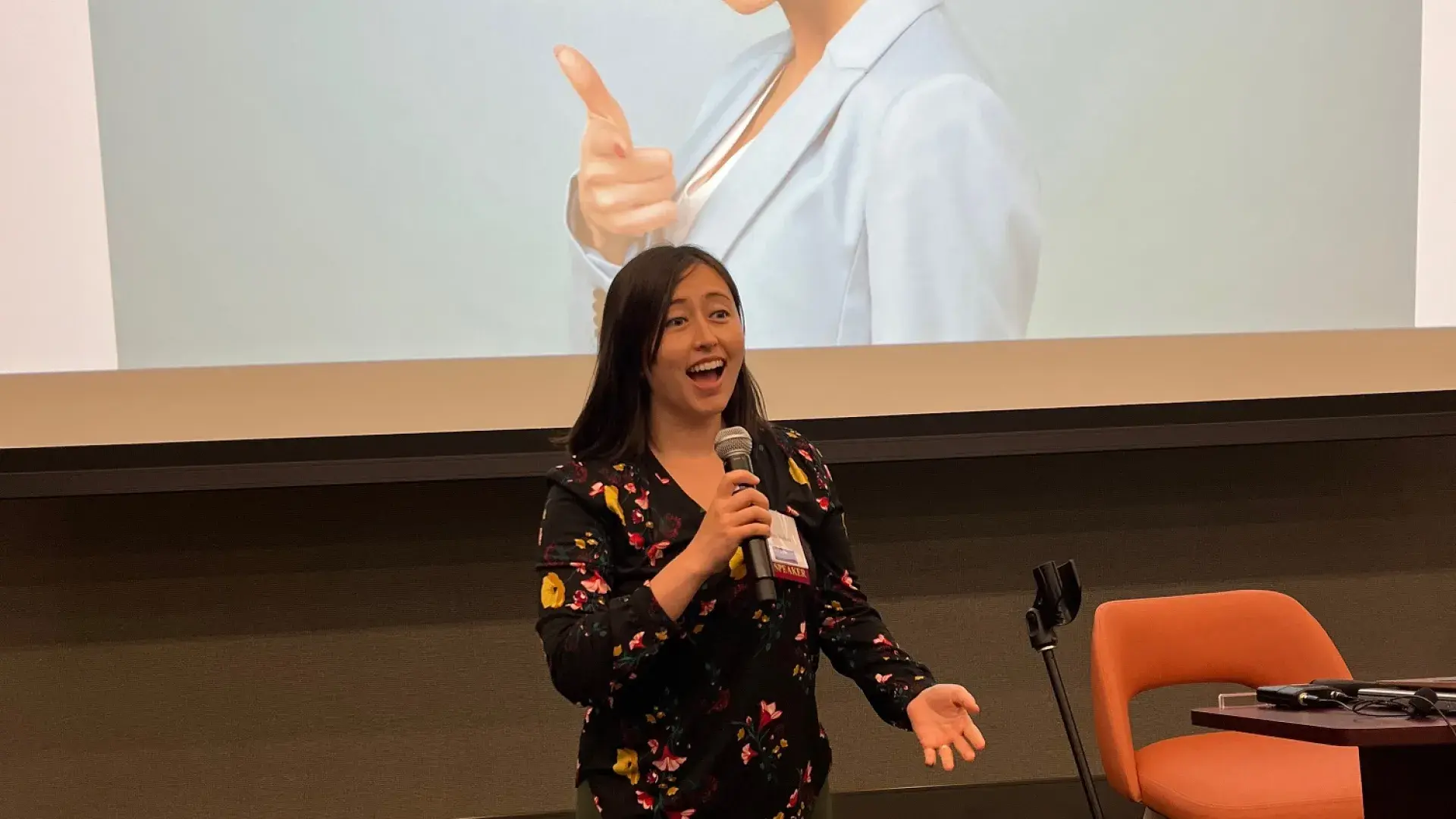
Laura Wolford is leading research into how to keep minoritized students in PT, OT, and SLP programs
Allied health educators spend a lot of time and care formulating their curricula so that it will position their students to be successful in the field. But they may also be imparting an unintended curriculum that has the opposite effect for minoritized students and makes it less likely that they will stay in the field.
This hidden curriculum is the subject of a research study being conducted by Dr. Laura Wolford, an assistant professor in the Communications Sciences and Disorders Department and the director of the TASSEL (Teaching and Supporting Student Experience in Learning) Lab. She is joined by Dr. Mirza Lugo-Neris, an assistant professor in CSD, Dr. Callie Watkins Liu, director of JEDI education and programs, and Dr. Keshrie Naidoo, associate professor and chair of the Physical Therapy Department.
According to Wolford, the hidden curriculum is “a collection of implicit, unspoken expectations for how students should behave, what they should believe, and what values they should hold.”
This can be challenging for some minoritized students because they are learning how to be a healthcare professional from people who may not realize they are incorporating messages based on their experience as members of a majority culture. That can lead to microaggressions and promote a feeling of otherness in students from different cultures. That can then be exacerbated by the lack of minoritized people currently in the field. At a time when there has been a national effort to have a healthcare workforce that reflects the makeup of the patient population, and these fields are facing growing personnel shortages, it is vital to address factors that may lead people to leave the field.
Wolford’s study is examining not only the nature of the hidden curriculum in physical therapy, occupational therapy, and speech language pathology programs, but also how it effects minoritized students’ sense of belonging and what actions can be taken to improve that sense of belonging.
“I am trying to help allied health programs create a culture where people from minoritized backgrounds feel seen, understood, and valued,” explained Wolford.
Research Perspective
Recently, there has been more attention on making programs more inclusive, but Wolford says that these attempts “tend to be predicated on a lot of faculty assumptions of students’ needs. If these assumptions are coming from the vantage point of folks from majority cultures and majority backgrounds, it can be harmful.”
To Wolford, having a research team comprised entirely of faculty from minoritized backgrounds who are looking at the actual experiences of minoritized students through interviews are keys to reducing that harm.
“We’re starting from the source to try to do this right. Participants have a chance to read through our positionalities and choose an interviewer that fits them,” she said.
To do this, Dr. Wolford, Dr. Watkins Liu, and Dr. Lugo-Neris are in the process of interviewing current students and recent graduates and exitees from PT, OT, and SLP programs to understand what they are experiencing in their programs and what could be done to better support them. The plan is to then create a national survey to see which areas should be the priority. “Instead of 100 different things, could we focus on one or two interventions that may really help people feel more belonging in their programs?” said Wolford.
While benefits of the research results may take some time to implement in full, there have already been some benefits to the people participating. “The participants are really getting something out of being able to tell their own stories,” noted Wolford. “It is not unusual for the participants to cry and tell me at the end that this was really meaningful.”
A few common themes are already evident from the information obtained through these interviews, and the plan is to take a few of them and see there are ways to start implementing them at the MGH Institute. Dr. Watkins Liu sees this as a good way to complement the work the JEDI Office does to educate faculty and other stakeholders about equity, diversity, and inclusions issues.
"In order to lead with Justice, as we describe our JEDI work, it is essential to be conscious of ways that inequities might be perpetuated on a regular basis,” said Watkins Liu. “The hidden curriculum work is an important step in being able to identify the informal norms and practices that shape the cultures of these health professions and curricula. As JEDI leader, the goal is to then use this information to make intentional choices that can enhance rather than diminish equity. This carries consequences for our students and health care fields."
Beyond Funding
The grant funding this research is a part of the Robert Wood Johnson Foundation's Health Equity Scholars for Action program, which named Wolford as one of its scholars earlier this year. The two-year program is part of the foundation’s goal to achieve health for all by addressing three areas: economic inclusion for family wellbeing, health and equitable community conditions, and equitable and accountable public health and healthcare systems. The program seeks to challenge biases and outdated conventions in research and academia by supporting early-career researchers from historically underrepresented backgrounds to help them advance personally and professionally. In addition to the grant, each scholar is matched with a career mentor and a technical coach selected specifically for them to support their growth in the field.
The program also provides access to a supportive community.
“I just came back from a writing retreat with the other Health Equity Scholars,” Wolford shared. “We have formed a cohort and meet with each other. It’s an opportunity to support each other in the next couple of years, and hopefully beyond.”
Do you have a story the Office of Strategic Communications should know about? If so, let us know.
